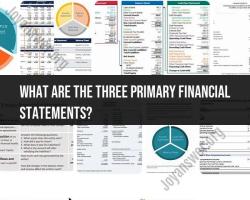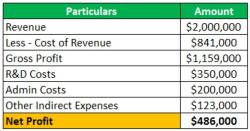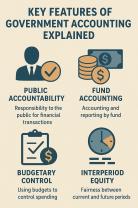Does an IRA still grow even after you turn 70?
Yes, an Individual Retirement Account (IRA) can continue to grow even after you turn 70 years old. However, there are some important rules and considerations to be aware of, especially when it comes to required minimum distributions (RMDs).
Here's what you should know:
RMD Requirements: Once you reach the age of 72 (formerly 70½ for those born before July 1, 1949), you are generally required to start taking annual RMDs from your traditional IRA(s). RMDs are mandatory withdrawals that the IRS requires to ensure that you start using your retirement savings for retirement income. The amount of your RMD is based on factors like your age, account balance, and life expectancy.
Growth Potential: Despite the RMD requirement, your IRA can continue to grow in value if your investments generate returns that exceed the amount you're required to withdraw. Many retirees choose to keep their IRA funds invested in a mix of stocks, bonds, and other investments to maintain growth potential, especially if they have a long retirement horizon.
Roth IRAs: If you have a Roth IRA, there are no RMD requirements during your lifetime. Roth IRAs allow your investments to grow tax-free, and you can leave them to heirs without RMDs as well.
Tax Implications: It's important to note that traditional IRA withdrawals, including RMDs, are typically subject to income tax. Roth IRA withdrawals, if you meet certain criteria, can be tax-free. Proper tax planning is crucial in retirement to minimize the tax impact of IRA withdrawals.
Investment Strategy: Your investment strategy should align with your retirement goals and risk tolerance. As you get older, you may want to adjust your investment portfolio to be more conservative to reduce risk, especially if you're relying on your IRA for income in retirement.
Estate Planning: If you do not need to rely on your IRA for retirement income and want to leave a legacy, you can consider strategies to pass your IRA to heirs tax-efficiently. The rules regarding inherited IRAs have changed in recent years, so it's essential to stay informed about the latest regulations.
In summary, while RMDs may require you to start withdrawing a portion of your traditional IRA after a certain age, your IRA can continue to grow if your investments perform well. Additionally, Roth IRAs do not have RMD requirements during your lifetime, offering more flexibility for tax-free growth. It's advisable to consult with a financial advisor or tax professional to create a retirement income and investment strategy that aligns with your financial goals and takes into account the specific rules and regulations that apply to your situation.
Financial Growth and IRAs: What Happens to Your Savings After 70
Individual Retirement Accounts (IRAs) are a popular way to save for retirement. IRAs offer a number of tax advantages, and they can help you grow your savings over time.
Once you reach age 70 1/2, you are required to start taking Required Minimum Distributions (RMDs) from your traditional IRAs. RMDs are the minimum amount of money that you must withdraw from your IRA each year.
The amount of your RMD is based on your age and your IRA balance. For example, if you are age 72 and your IRA balance is $100,000, your RMD would be $3,846.
You can withdraw more than your RMD each year, but you will have to pay taxes on the excess amount. You can also choose to delay taking your first RMD until April 1st of the year following the year you turn 72.
Retirement Accounts at 70: Understanding the Continued Growth of IRAs
Even though you are required to start taking RMDs from your IRA after age 70 1/2, your IRA can continue to grow. This is because your IRA investments can continue to earn interest and dividends.
In addition, if you continue to contribute to your IRA after age 70 1/2, your IRA balance will continue to grow. You can contribute up to the annual contribution limit for IRAs, which is $7,000 for 2023 if you are under age 50, or $6,500 if you are age 50 or older.
Secure Savings for Seniors: The Post-70 Growth of Individual Retirement Accounts
IRAs can be a great way to secure your savings for retirement, even after age 70 1/2. By continuing to invest in your IRA and taking your RMDs on time, you can help ensure that you have enough money to live comfortably in retirement.
Here are some tips for using your IRA to secure your savings for retirement:
- Choose investments that are appropriate for your age and risk tolerance. As you get older, you may want to consider shifting your investments to more conservative options.
- Rebalance your IRA portfolio regularly. This will help ensure that your investments are still aligned with your risk tolerance and financial goals.
- Take your RMDs on time. If you fail to take your RMDs, you may be subject to a penalty tax.
If you have any questions about your IRA or how to use it to secure your savings for retirement, I encourage you to consult with a financial advisor.













